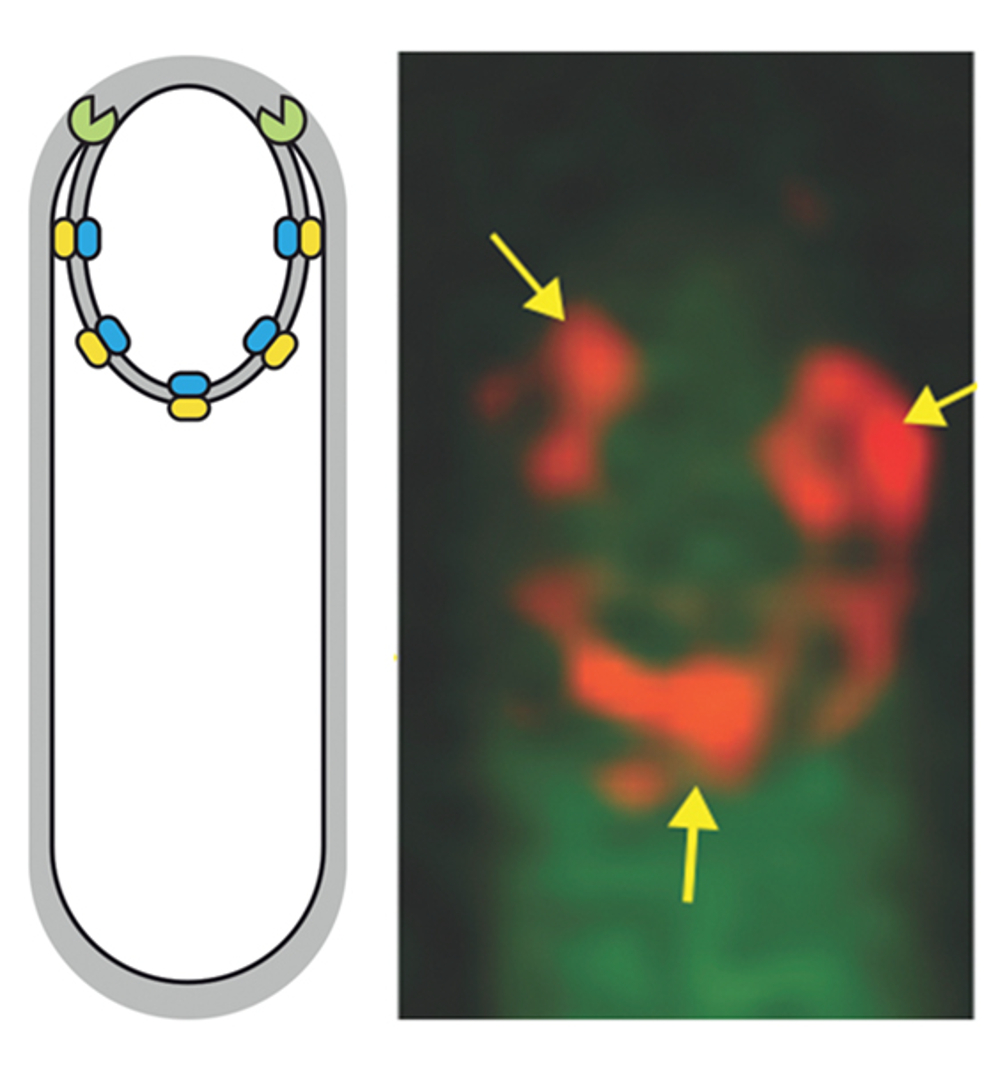
The SpollQ-SpolllAH complex of Clostridium difficile controls forespore engulfment and late stages of gene expression and spore morphogenesis
Mónica Serrano, Adam D. Crawshaw, Marcin Dembek, João M. Monteiro, Fátima C. Pereira, Mariana Gomes Pinho, Neil F. Fairweather, Paula S. Salgado, Adriano O. Henriques
Molecular Microbiology, 2016
Abstract
Engulfment of the forespore by the mother cell is a universal feature of endosporulation. In Bacillus subtilis, the forespore protein SpoIIQ and the mother cell protein SpoIIIAH form a channel, essential for endosporulation, through which the developing spore is nurtured. The two proteins also form a backup system for engulfment. Unlike in B. subtilis, SpoIIQ of Clostridium difficile has intact LytM zinc-binding motifs. We show that spoIIQ or spoIIIAH deletion mutants of C. difficile result in anomalous engulfment, and that disruption of the SpoIIQ LytM domain via a single amino acid substitution (H120S) impairs engulfment differently. SpoIIQ and SpoIIQH120S interact with SpoIIIAH throughout engulfment. SpoIIQ, but not SpoIIQH120S, binds Zn21, and metal absence alters the SpoIIQ-SpoIIIAH complex in vitro. Possibly, SpoIIQH120S supports normal engulfment in some cells but not a second function of the complex, required following engulfment completion. We show that cells of the spoIIQ or spoIIIAH mutants that complete engulfment are impaired in post-engulfment, forespore and mother cell-specific gene expression, suggesting a channel-like function. Both engulfment and a channel-like function may be ancestral functions of SpoIIQ-SpoIIIAH while the requirement for engulfment was alleviated through the emergence of redundant mechanisms in B. subtilis and related organisms.